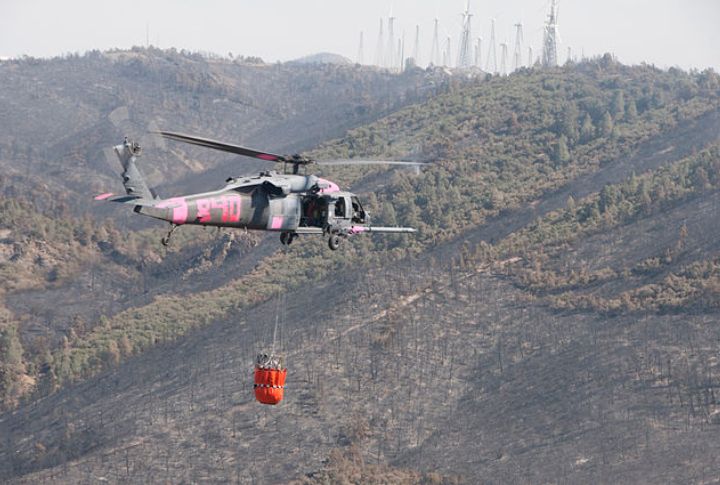
California’s 2025 wildfire crisis reignited discussions about firefighting strategies. While ocean water seems like an endless resource, it hides risks that could worsen ecological damage. This list comes with ten facts that shed light on why saltwater remains a last resort for wildfires.
Damage To Soil And Vegetation

Ocean water used for firefighting leaves behind excessive salt and renders the soil uninhabitable for most plants. Farmlands struggle to recover, which leads to widespread ecological damage. Over time, these green areas turn into unproductive wastelands and create long-term challenges for restoration efforts.
Contamination Of Freshwater Resources

Coastal aquifers are already in danger from saltwater intrusion. When ocean water seeps or flows inland, the situation worsens when salt mixes with freshwater lakes and reservoirs. With these resources contaminated, it triggers a chain reaction that further affects local drinking water supplies and irrigation systems.
Adverse Impact On Wildlife

Salinity can negatively impact wildlife by slowing growth and impairing immune systems. It can cause tissue damage and alter lipid and amino acid metabolism. Moreover, osmotic stress from salinity can intensify the effects of other stressors, such as toxicants. Such effects on animals are more critical than what people may think.
Reduction In Forest Resilience

Forests are essential in absorbing carbon dioxide, but exposure to saltwater compromises their health. Excessive salt stresses tree roots and causes early browning of leaves, which hampers growth and can lead to tree demise. The weakening of forests affects entire ecosystems and makes them more susceptible to future fires and pest invasions.
Disruption Of Marine Life

When ocean water is used for firefighting, marine life, like small fish and invertebrates, can unintentionally be captured, disrupting coastal ecosystems. Removing these species impacts the food chain and ecosystem balance, as they play vital roles in their habitats. Such disturbances highlight the importance of sustainable practices to protect marine biodiversity.
Higher Risk Of Future Fire

Native vegetation, often a natural firebreak, fails to recover after saltwater exposure and leaves the soil vulnerable. That disruption allows invasive plant species with no fire-resistant properties to take over. The land also accumulates dry, flammable debris and increases the risk of future wildfires even more.
Impact On Infrastructure

Saltwater firefighting can also cause severe infrastructural damage due to its corrosive nature. The salt accelerates the deterioration of roads and buildings, weakening their structural integrity over time. Those effects further complicate recovery and rebuilding efforts. Therefore, seawater’s long-term impact outweighs its emergency benefits.
Corrosion Of Equipment

Fire trucks and water tanks are vulnerable to saltwater’s corrosive properties. Ocean water accelerates rust and decay, which demands repairs or complete replacements. These factors increase operational costs significantly. Additionally, the disposal of corroded parts and the production of new equipment add to environmental burdens.
Limited Availability In Inland Areas

Ocean water is not a practical solution for fires occurring far from coastal regions. Transporting seawater inland requires extensive infrastructure and resources, which are often unavailable during emergencies. This logistical hurdle makes ocean water an unreliable option for fighting wildfires in remote or landlocked areas.
Effects On Air Quality

The use of ocean water in firefighting can produce salt-laden mist and steam when exposed to high heat. This salty vapor can irritate respiratory systems in humans and animals and exacerbate air pollution. The combination of smoke and salt particles may create additional health risks for communities near wildfire zones.
